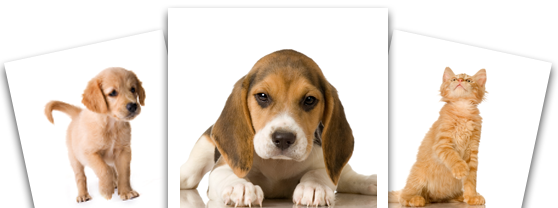|  |
|  |
(574)277-9900
www.universityparkvethospital.com
|
Your Pet's Dental Health
Dental care is an extremely important and frequently overlooked aspect in the health and longevity of your pet. Bad breath, known as halitosis, is caused by periodontal disease, and is easy to prevent and treat. Other causes of halitosis exist, but they are short term. A thorough oral exam is the best way to identify the cause and help you to formulate a treatment plan. The American Veterinary Dental Society reports that varying degrees of dental disease are present in all pets by their 3rd birthday. Dental disease begins as plaque - a buildup of bacteria on the teeth and gums. Plaque is soft and frequently difficult to see. Animals that have mild buildup of plaque often respond to in-home dental hygiene techniques the best. Eventually, the plaque becomes mineralized and turns into tartar or calculus. The calculus deposits are impossible to rub or brush off the teeth. By the time that the calculus has appeared, there can be damage to the gums and tooth roots. Many times this damage cannot be reversed, and teeth may have to be extracted.
Some signs of extreme periodontal disease requiring immediate veterinary attention are as follows:
1. Foul breath 2. Yellow, brown, or purple discoloration to the teeth 3. Red, swollen, bleeding gums 4. Excessive drooling 5. Blood in the saliva or on a toy 6. Broken teeth 7. Reluctance or hesitation to chew (toys or hard food) 8. Shifting the food around in the mouth while eating 9. Reluctance or refusal to eat We perform full mouth radiographs on every patient receiving a dental cleaning!
Please also remember that we require pre-anesthetic blood work to assess the overall health of your pet prior to anesthesia. We may also send antibiotics home before or after the dental procedure to prevent or treat infections.
|